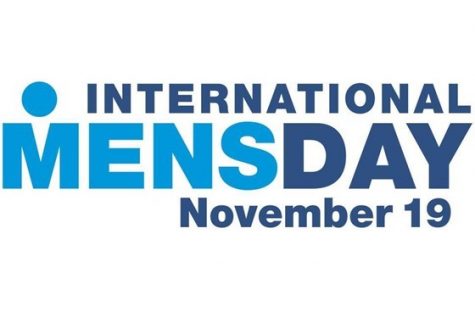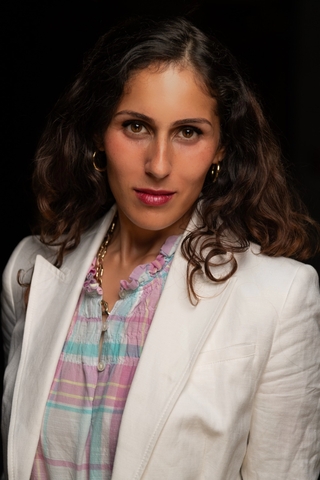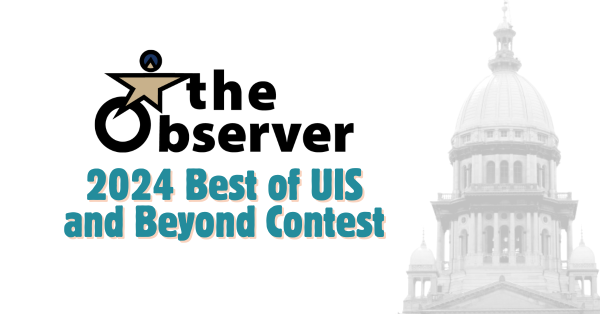GSSS Looks to the Future
[This story was originally published by The Journal on October 8, 2020. It has been revised, edited and updated as of Sept. 21, 2021]
On September 17, 2020 Patricia Sanchez sent out an email on behalf of Dr. Van Vieregge, Interim Vice Chancellor for Student Affairs, titled “GSSS Office Update.” In this email it was relayed to the student body that the Gender and Sexuality Student Services (GSSS) would become a part of the Diversity Center under Director Justin Rose. The email also said that Sara-Ann Rosen, the Graduate Assistant for GSSS, would handle day-to-day operations while they were in the process of hiring a program coordinator to oversee the Safe Zone and other GSSS programs. There was no mention of the role for current (at the time) Director Kerry Poynter.
A search of the staff listed on both the Diversity Center and GSSS websites makes it clear that Poynter is no longer part of the staff in this office. Mr. Poynter leaving GSSS was kept exceptionally quiet and there seems to be no public explanation for his position being terminated.
When Mr. Poynter was reached for comment, he explained that he remains under contract with UIS, ending Sept. 30, 2021. He has been working remotely on special projects to support the Division of Student Affairs.
“I am currently pursuing a doctorate at Rutgers University (New Brunswick, NJ), concentration in Education, Culture and Society, essentially a degree in equity and inclusion in higher education,” Poynter explained. “My leaving is entirely personal and not one I wish to share publicly.”
The Diversity Center and GSSS were not able to divulge information surrounding Poynter. The hiring and firing processes at UIS are always closed and private, so the responses received were expected and respected. Only one then-current worker, Graduate Assistant Sara-Ann Rosen for GSSS, mentioned Poynter in an email responding to questions about GSSS, saying, “I sincerely admire and am grateful for the years of innovative programming and greater campus visibility resulting from Poynter’s work, which will continue to inform GSSS’s vision.”
Amileo Glover, a past student-coordinator, discussed what it was like to work with Poynter. His statement described ways in which he felt that Poynter poisoned the office environment. Glover said he wanted to create a space for all queer people, especially those who are people of color, yet Glover said “[Mr. Poynter] actively tried to reorient our different programs missions to cater to the desires of white queer people,” even when the staff had different goals for their programs in mind. It also became apparent that Poynter had favorites.
Glover also said, “[i]t got to a point in which the staff and I grew incredibly uncomfortable when he asked us to foster the idea in students minds to be comfortable to talk about their sex lives with him.” Glover said, “Kerry… would push us to not create events with other offices… he did not like us working with the Women’s Center and openly talked negatively about the previous coordinator of the center.”
As for the statements made regarding his behavior with working as Director of GSSS by Amileo Glover to The Journal, Mr. Poynter responded this way:
“The claims by the former student staff member are contemporary cultural and lightning rod issues in our country thanks to the ongoing Black Lives Matter and #MeToo movements. The accusations are racism in my GSSS events/programs/educational interventions (basically accusing me of white supremacy), implying I was a sexual predator (one of the worst of gay male myths) in the office, and refusing to collaborate with The Women’s Center.
“I learned long ago that it is good practice to listen to and consider the feedback or criticism that may come from people of color and others that have identities that are historically oppressed and marginalized. I endeavor to employ this listening skill without instantaneously reacting with malice, shade or negativity in a continuing personal journey to be a better ally and advocate. I cannot train others to be anti-racist/sexist/transphobic/homophobic (among others) if I am not willing to practice what I preach. In this case, the former student is just plain wrong. I have thought long and hard about this and do not desire to expound further in regards to his motive or the effect this has had on me. Regardless, I genuinely hope he finds academic success by building upon what he started at UIS and I truly wish him well.”
Regarding allegations of racism and white supremacy, Mr. Poynter points out that “the majority of events and educational programs I created and planned in my ten years at GSSS were about LGBTQIA+ people and communities that are Black, African, API, Latinx, and others, including a very diverse spectrum of sexualities, gender identities and expressions [as well as] an intentional decade-long goal and emphasis for racial justice in queer communities, a visible example of how to provide inclusion, and the erasement of White Supremacy Culture in at least one office/department at UIS. I consistently employed an intersectional-feminist and racial justice practice as the director of GSSS, interim executive director of the Diversity Center, and director of the UIS Coalition Builders affiliate team of the National Coalition Building Institute.” He pointed out that any interested parties can conveniently access a listing of past GSSS events and programs coordinated by Mr. Poynter since 2010.
“The student staff member quoted by The Journal disapproved of me broaching topics of queer sex and intimacy,” said Mr. Poynter. “I make it clear that I am not ashamed of open and honest dialogue about queer sex and intimacy that allows for healthy and scientifically/medically accurate sex education about safe sex, safe dating and inevitably how to attain consent. This is called sex positivity, a professional best practice. My master’s degree is in Counselor Education. Student staff are still learning and are a product of our sex negative culture. I thought it best not to expect him to do the same since he was uncomfortable. The correct option is for student staff to refer students on these topics to me, if I was not present to respond to them, so they knew they had a resource, He refused and informed me I was too old.”
Mr. Poynter was hired as the first Director of GSSS eleven years ago. “My decision to accept the job was motivated in part because I realized UIS was an opportunity to better the lives of young adults in a region of the country that desperately needed it.” He was recruited from New York City, where he had worked in similar positions for NYU and Columbia University. “When I arrived at UIS, the queer community (students, staff, faculty) and administration were incredibly distrustful of each other due to a general lack of forward movement and inclusion of LGBTQIA+ students and people across campus,” he said. “Additionally, a hate crime on campus against queer students and local queer residents had recently occurred in 2009. There was much pressure on my shoulders to heal wounds, real and figurative. I am proud of what I managed to achieve at UIS and how I helped move the university forward in acceptance, awareness, and inclusion.” Mr. Poynter counts numerous successes and a stellar list of accomplishments during his time with GSSS. “In many ways, the UIS community came together but the pressure I often felt came with a personal cost. I have met some wonderful students the last eleven years and have seen them become young adults developing affirming identities that allowed them to graduate. Similarly, I have made professional friendships with colleagues that I will continue to cherish,” he said. “What a ride!”
Under the leadership of Justin Rose, GSSS looks forward to a bright future. Glover also mentioned Rose in his statement, saying, “I enjoyed working with Justin Rose in the Diversity Center because he was always welcoming and fostering towards the avenues of equity, representation and inclusion.” Director Rose himself shared these sentiments in his own statement about what he envisioned for the joining of GSSS and the Diversity Center, saying, “in this new partnership, I believe it provides an opportunity to align with the pillars and practice of diversity, equity, and inclusion that we promote at UIS…there is an increased opportunity for the commitment of equity over injustice. I believe it starts with continuing to lean in and support many of the programs and services that already exist like Safe Zone, LGBTea, support groups like Shades and Fluidity, but equally as important is keeping an attentive ear to the student experience on our college campus. Understanding their experience will play a huge role in our efforts to adapt to stay a safe, inclusive, and nurturing environment for sexual and gender minority students and colleagues alike.”
Graduate Assistant Rosen is also an equally important partner in the unifying of the Diversity Center and GSSS and she is ready to take on her new, more interactive role of handling the day-to-day operations of GSSS. She stated, “I feel privileged to be able to serve that cause through the new partnership with the Diversity Center under the direction of Justin Rose.”
Click [here] for additional material provided by Kerry Poynter in relation to this story












